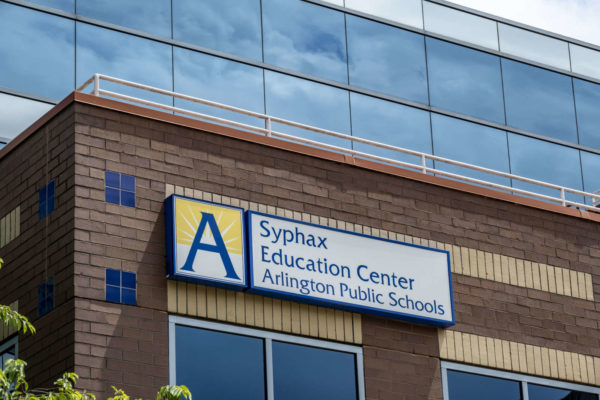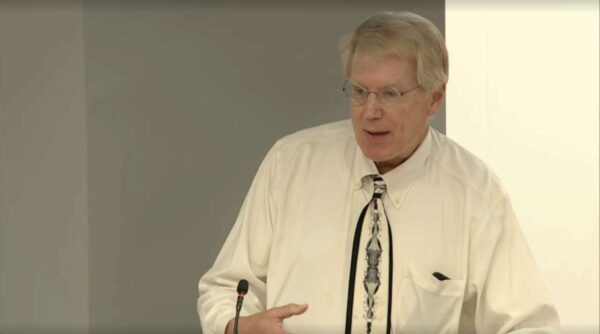
(Updated at 11:15 a.m.) The failures of the controversial Virtual Learning Program were “an indigestible meal that is going to make you sick,” an Arlington Public Schools auditor told the School Board this summer.
APS created the VLP in May 2021 for families who had reservations about resuming in-person school last fall as well as for students who prefer online instruction. But it quickly malfunctioned for a dozen reasons, according to the audit, prompting school leaders to “pause” the program for the 2022-23 school year and redirect online students to Virtual Virginia (VVA).
APS lacked a formal plan and necessary time to stand up the program, having just the summer to do so, according to auditor John Mickevice. He said planners did not think through the problems that might arise trying to hire 111 teachers in that same period, amid hiring freezes.
The VLP needed more principals, teachers and specialized staff to meet the needs of students, who were overwhelmingly students of color, English learners and students with disabilities, he said. Program leaders were slow to inform administrators of technology issues and teacher shortages.

School Board members accepted the report on July 19 as a “learning” opportunity, taking some ownership for the problems but chalking others up to the pandemic. But they haven’t given up hope on a long-term virtual option, which could relieve capacity pressure and let secondary students pursue extracurricular opportunities, take more classes or recover credits.
A working group and task force are currently exploring what that could look like. Their recommendations are slated for School Board review this December.
“The School Board and Superintendent requested the Audit Report to formally assess the Virtual Learning Program and ensure the issues do not repeat themselves,” School Board Chair Reid Goldstein said in a statement to ARLnow. “The audit reinforced several of the themes which APS staff communicated openly throughout the 2021-22 school year, including insufficient planning time and resources to properly plan for and execute a virtual learning program.”
The working group and task force are “carrying these lessons forward in their work to propose a more sustainable virtual offering for students,” Goldstein said. “APS will continue to keep the community informed as this work progresses.”
Some in the school community say pursuing in-house online learning at all is the wrong takeaway.
“I think the painful lesson to learn was not to do this again. A valuable lesson, but a painful lesson,” said independent School Board candidate Vell Rives. “I think APS should be concentrating on in-person instruction. That’s our charge.”
Bethany Sutton, who has the endorsement of local Democrats, said APS over-extended itself and strayed away from its mission.
“[T]hey lost their way as to whether the VLP was a Covid-related stopgap measure or whether it was a permanent, full-fledged K-12 program,” she said. “This is absolutely a moment for the Board to examine its oversight role, any related policies, and the transparency of how they respond to situations that are emerging in real-time.”
Before getting too far into planning a new program, she said APS needs to determine demand for virtual learning. Currently, there are 33 students enrolled in Virtual Virginia, according to the school system.
In a statement to ARLnow, watchdog group Arlington Parents for Education said the audit demonstrated “there should be a presumption against the use of [virtual learning] options going forward.”
“The audit report identified shocking failures and highlighted that the School Board must take ownership and oversight of APS seriously, including vetting, voting on, monitoring and holding APS leadership accountable for initiatives that impact instruction and the remediation of learning loss,” the group said.
Arlyn Elizee, whose children were in the program last year, said the audit’s lessons won’t be internalized until APS remediates the acute learning loss these children suffered.
“Assuming that all of these issues will soon be addressed [and] remedied as VLP students are dispersed back into their brick and mortar schools or into Virtual Virginia this Fall is not enough,” said Elizee, speaking on behalf of the VLP Parents’ Coalition, which formed to connect families and bolster their advocacy efforts.
She said APS principals, teachers and counselors must prioritize VLP students’ academic recovery, social-emotional counseling and the delivery of their needed special-education and English-learning services.
Elizee, who is also on the online learning task force, said APS should track the progress of all former VLP students as a cohort for at least three years and report the data at School Board meetings.
“Former VLP students are forever marked as ‘VLP students’ as collectively they suffered greater amounts of learning loss than the national average and the in-person APS students during the pandemic due to the numerous APS issues documented in the VLP audit & constantly brought up by the VLP Parents’ Coalition,” she said.
In the months since the report, however, similar issues have arisen with the state’s virtual platform.
“[W]e are already hearing reports of big misunderstandings from APS regarding [VVA] and what they offered, and once again the VLP students are getting the short end of the stick,” Elizee said. “As suspected, it turns out that [VVA] is not the panacea that was being sold to VLP Parents earlier this year.”
Special classes like art and music were not what parents were led to expect, and children could not choose which international language they’d take. Meanwhile, some students with disabilities were promised aides who would have access to their coursework and classes, but the state program has not granted these aides proper access, she said.
That’s because VVA only allows one “observer” per student. Staff are working with the state to fix this and provide the additional mentorship, says schools spokesman Frank Bellavia. He added that art and music are not stand-alone classes, but wrapped into their regular instruction, and VVA does not let families choose special classes.
“Building the plane as it’s flying did not work well last year yet for some VLP students, it’s starting to feel like scary déjà vu,” Elizee said.

